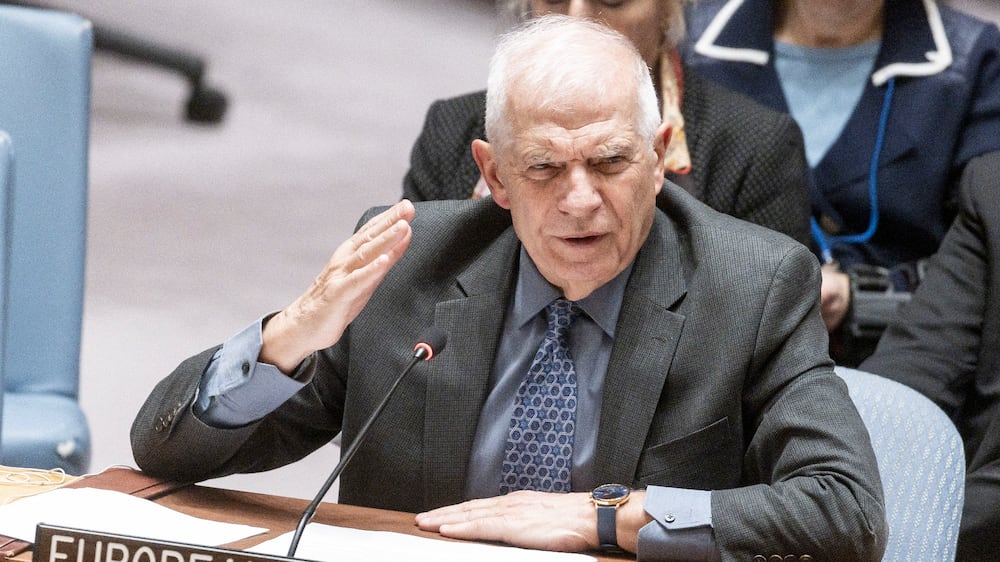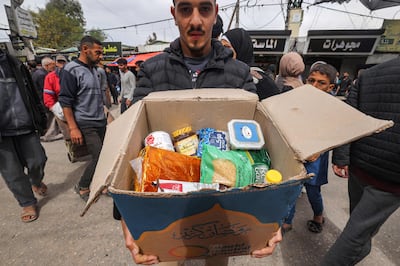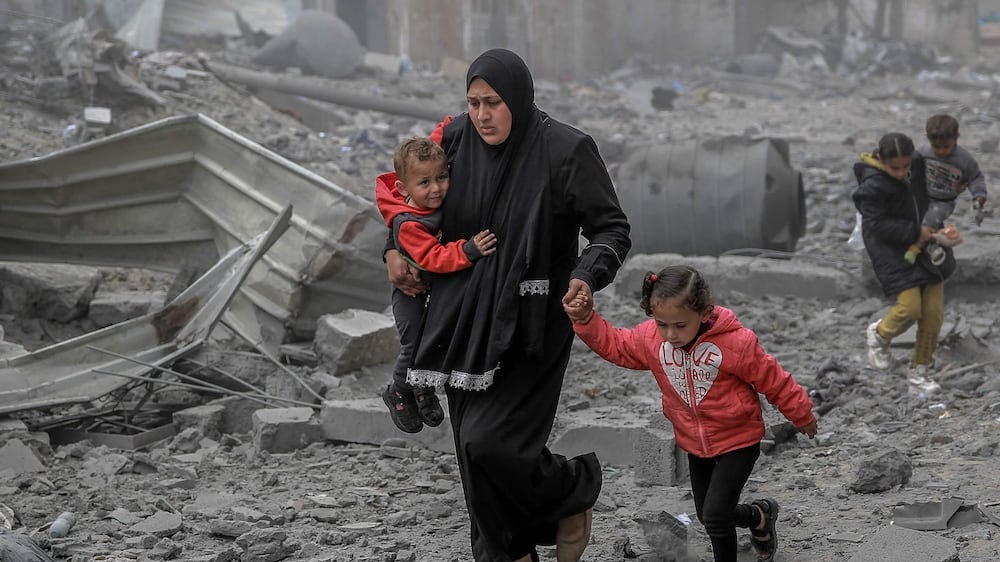Live updates: Follow the latest on Israel-Gaza
A record number of Palestinians are living in acute hunger in Gaza, with famine to hit the enclave by the end of May if a ceasefire is not reached and urgent aid delivered, a UN-backed report warned on Monday.
The number of people facing “catastrophic hunger” in Gaza has risen to 1.1 million, about half the population, the report by the Integrated Food Security Phase Classification said.
“The latest evidence confirms that famine is imminent in the northern governorates and projected to occur anytime between mid-March and May 2024,” it said.
The city of Deir Al Balah in central Gaza and the southern cities of Khan Younis and Rafah are expected to face famine by July, the report said.
The enclave's population faces high levels of acute food insecurity, it said, with the “most likely scenario” projecting half of Gazans will face famine by mid-July, an increase of 92 per cent from the last analysis.
“The famine threshold for household acute food insecurity has already been far exceeded,” the report said. The number of non-trauma deaths is also expected to rise as starvation spreads, it added.
Gaza was already highly dependent on aid before the war broke out in October after a Hamas attack killed about 1,200 people in Israel. Since then, more than 31,700 people have been killed and aid deliveries, controlled by Israel, have been reduced to a trickle.
Only 60 lorries carrying food aid entered Gaza between October 7 and February 24, the report said, down from a daily average of 150.
“Virtually all households are skipping meals every day and adults are reducing their meals so that children can eat. In the northern governorates, in nearly two thirds of the households, people went entire days and nights without eating at least 10 times in the last 30 days,” it said.
At least 27 people, most of them children, have starved to death in Gaza's hospitals, according to the enclave's Health Ministry.
Referencing the report, UN Secretary General Antonio Guterres told reporters in New York that “Palestinians in Gaza are enduring horrifying levels of hunger and suffering”.
“The world’s leading experts on food insecurity clearly document that famine in the northern part of Gaza is imminent,” he said.
Mr Guterres also called on Israel to “ensure complete and unfettered access for humanitarian goods throughout Gaza”, and for the international community to fully support UN humanitarian efforts.
Ted Chaiban, the UN children’s fund’s deputy executive director, said children were now dying “a slow painful death” caused by malnutrition and dehydration.
Mr Chaiban, who was speaking at the European Humanitarian Forum, added: “We know of 23 children in the north of the Gaza Strip, according to reports we have received from hospitals, who have died due to malnutrition and dehydration.
Palestinians have resorted to grinding animal feed to make flour, while hundreds of others have been shot dead by the Israeli military while waiting for food aid.
EU foreign policy chief says starvation in Gaza is being used as a war arm

The UN's relief chief Martin Griffiths said the international community must “flood” Gaza with aid to avert a full-scale famine.
“Famine is imminent in Gaza. More than 1 million people are at risk because they have been cut off from life-saving aid, markets have collapsed, and fields have been destroyed,” he wrote on social media.
“The international community should hang its head in shame for failing to stop this.
“We know that once famine is declared, it is way too late. With action and goodwill, it can be averted.”
Arif Husain, the WFP's chief economist, told reporters in New York that while a ceasefire is a necessary condition, it would not in itself be sufficient to avert a famine.
“We need to be able to get to these people and we need to provide them with the right assistance,” he said.
“And we need to do it in a very sustainable way,” he added. “What is important … is to make sure that people don't die under our watch.”
EU foreign policy chief Josep Borrell said Israel's military campaign had turned long-blockaded Gaza from the world's “greatest open-air prison” into its biggest “open-air graveyard”, and that Israel was using famine as a “weapon of war”.
Foreign Minister Israel Katz said that “Israel allows extensive humanitarian aid into Gaza” and accused Mr Borrell of “attacking Israel”.

Fears of an impending famine worsened after the World Food Programme suspended aid deliveries to northern Gaza in February when their convoys were shot at by the Israeli army and overwhelmed by civilians desperate for assistance.
Also on Monday, Oxfam accused Israel of “deliberately” hindering aid deliveries into Gaza. It has rendered the humanitarian response to the war both “dangerous and dysfunctional”, the charity added.
A growing number of countries have dropped aid into Gaza in recent weeks, and two aid ships carrying several hundred tonnes of food aid have also departed for the enclave, but experts say the amount pales in comparison to the scale of the need.
Civilians in northern Gaza told The National they relied on feeding their children wild herbs growing around camps amid the aid shortages.
“My children are crying. They want real food,” said Haitham Hamoda.
Adla Massoud contributed reporting from the United Nations.







